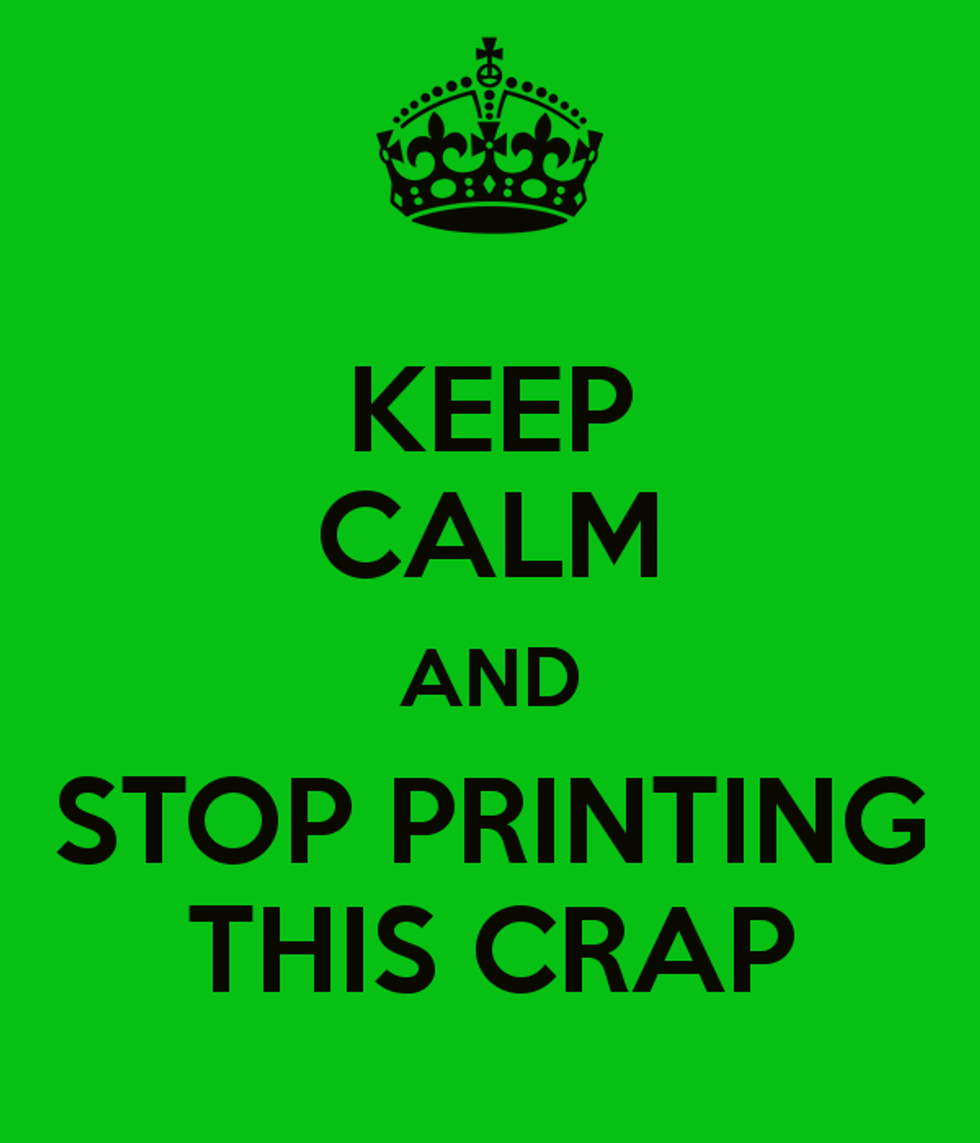With classes, extracurriculars, and internships looming on the horizon, being environmentally-friendly is often the last thing on a college student's mind. However, every single one of us lives on this green earth and leaves a daily footprint on the environment. You might not think your actions matter, but they really, truly do. The little things add up very quickly when there are 7 billion people populating the planet. As we segue into a new semester, here are 10 super easy baby steps toward becoming a more eco-friendly college student.
1. Turn off the lights when you leave the dorm room (or just any room if you live off-campus).
You can save a lot of energy by not lighting an empty room. Energy efficiency conserves resources, cuts down on pollution, and saves money (for the university but also for you—hello, rising tuition costs!).
2. Do the same for the thermostat.
Your furniture doesn't care if it's too hot or too cold. Turning off the thermostat when you leave takes maybe two seconds. Turn it on again once you walk back in, and you only have to endure a few minutes while the temperature adjusts.
3. Use the bins for their intended purposes.
Don't put trash in the recycling bins and vice versa. It takes hardly any extra effort to toss that plastic bottle into the blue bin instead of the regular trash can. Recycling saves energy, reduces pollution, reduces waste costs, increases the life span of landfills, and decreases habitat damage by lowering demand for materials such as paper. (And yes, beer cans are recyclable.)
4. Don't litter!
Rice students are pretty good at this. There are trash cans all over campus, easily within reach if you are ever tempted to just let a gum wrapper fall to the ground.
5. Never let the water run.
When you're brushing your teeth, that is. Water is a precious resource! Just look at droughts in places like California, Massachusetts, and the Eastern Mediterranean.
6. Finish your plate.
Definitely guilty of violating this at times. Gauge hunger levels accordingly, and when trying new food at the serveries, put a small amount on your plate to test it out first. If you hate it, you only have to eat a few bites. If you love it, you can always go back for more (no shame in seconds!). In addition to how unethical it is to waste food, large amounts of energy and resources are poured into food production, something we usually don't think about when we sit down to eat.
7. E-tickets and e-receipts.
Save on paper by ordering digital tickets (they're really convenient nowadays) and choosing e-receipts at restaurants and shops when possible.
8. Don't print unnecessary things.
I can't count the number of times I've seen huge, multi-page documents abandoned at the library printers. Making awareness a habit while printing—double-checking edits, copy number, and printer destination, for example—can prevent unnecessary paper waste.
9. Get the junk out of your trunk.
Surprising, no? Extra weight in your car reduces fuel efficiency. Cut down on fuel consumption and save moolah on gas by taking out the unused items hanging around in your car.




























